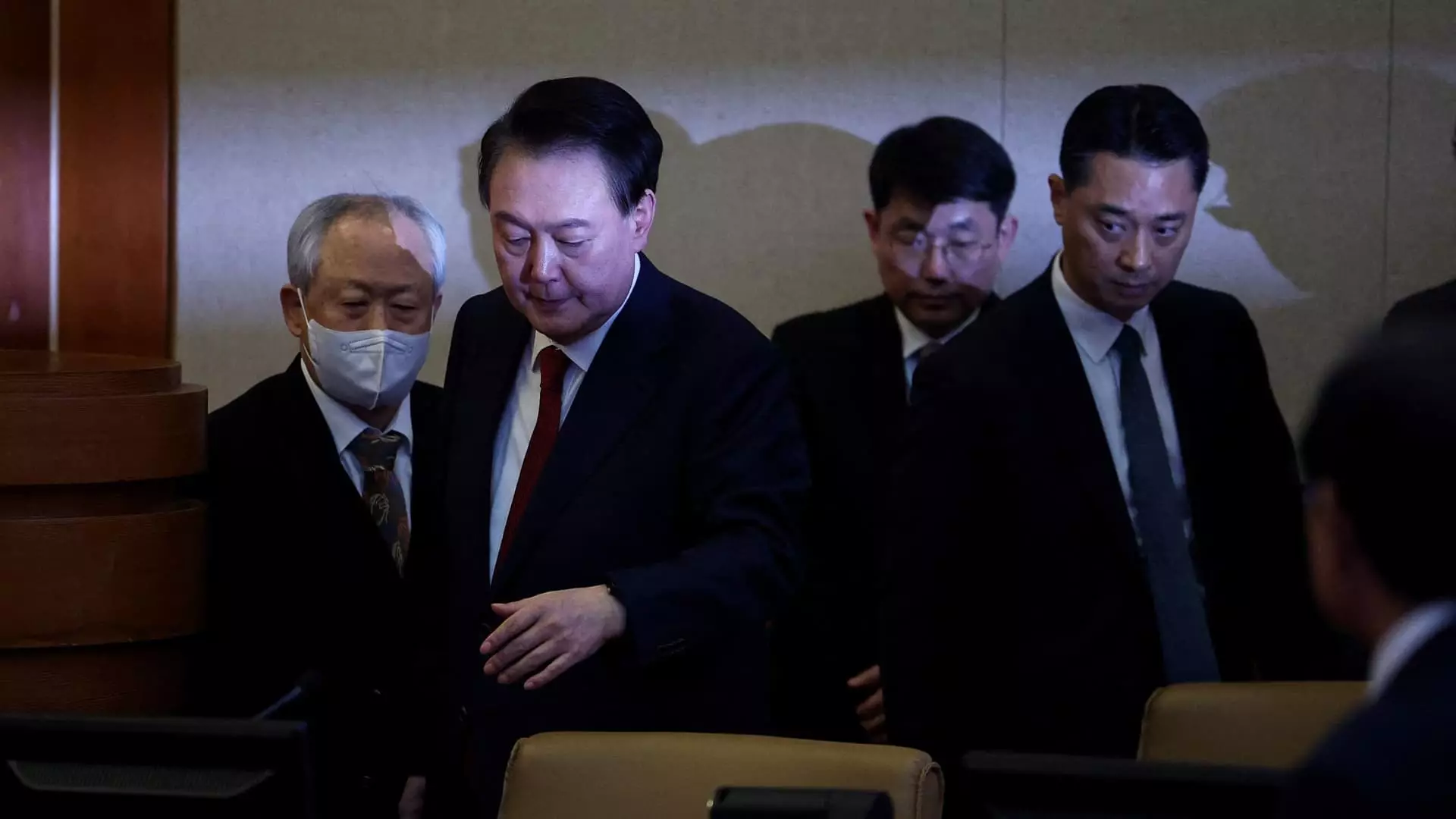The recent unanimous verdict from South Korea’s Constitutional Court to uphold the impeachment of President Yoon Suk Yeol marks a pivotal moment in the country’s political landscape. Yoon’s ambitious attempt to impose martial law in December was not merely a lapse in judgment; it represented a significant and alarming overreach of executive power. This was the first instance in over four decades that South Korea has encountered a situation so dire, where constitutional safeguards were put to the ultimate test. Importantly, the court’s ruling serves as a testament to the resilience of South Korea’s democratic institutions, reaffirming the principle that no leader is above the law.
The Fragile Nature of Democratic Norms
President Yoon’s effort to declare martial law, citing threats from “North Korean communist forces” and “anti-state forces,” reflected a serious misunderstanding of the balance required in times of national concern. Rather than fostering unity or employing measured diplomacy, Yoon’s actions instigated chaos and division. Moments such as these are critical reminders of how fragile democratic norms can be; a lesson the world cannot afford to ignore. The fact that Yoon sought to suppress dissent by sending troops into parliament was not only an unlawful act but also an affront to the very ideals of democracy that South Korea espouses.
The Role of Leadership in Times of Crisis
In a democracy, leaders are expected to navigate crises through dialogue, collaboration, and respect for institutional processes. That expectation goes beyond mere governance; it becomes a moral obligation. Yoon’s conduct demonstrated a complete lack of awareness regarding ethical leadership. Instead of leading by example, he resorted to coercion, endangering the very fabric of civil liberties and democratic participation. This oversight draws attention to the disturbing possibilities that arise when populist rhetoric influences governance, especially when leaders prioritize their survival over national integrity.
Effects on the South Korean Economy and Society
After the announcement of Yoon’s impeachment, the South Korean stock market exhibited mixed results—a telling illustration of the uncertainty that the political climate breeds. The Kospi experienced a noticeable dip, resonating concern among investors, while the Kosdaq saw a slight increase, perhaps reflecting hopes for renewed stability. Emerging from turmoil, the interim leadership under Prime Minister Han Duck-soo presents an opportunity to restore some semblance of balance. This period introduces a chance for the nation to reassess its priorities, ensuring the appointment of a leader who embodies democratic values rather than one who misuses authority for self-preservation.
Looking Beyond the Impeachment
As South Korea embarks on a 60-day countdown to a new presidential election, the implications of Yoon’s impeachment will continue to reverberate throughout society. Citizens must now engage in earnest discussions about what they expect from their leaders moving forward. The recent events highlight the crucial need for electoral accountability, civic education, and robust mechanisms that prevent abuses of power. As South Koreans prepare to exercise their electoral rights, it is imperative that they choose wisely, to ensure that future leaders will prioritize the nation over personal agendas.


Leave a Reply